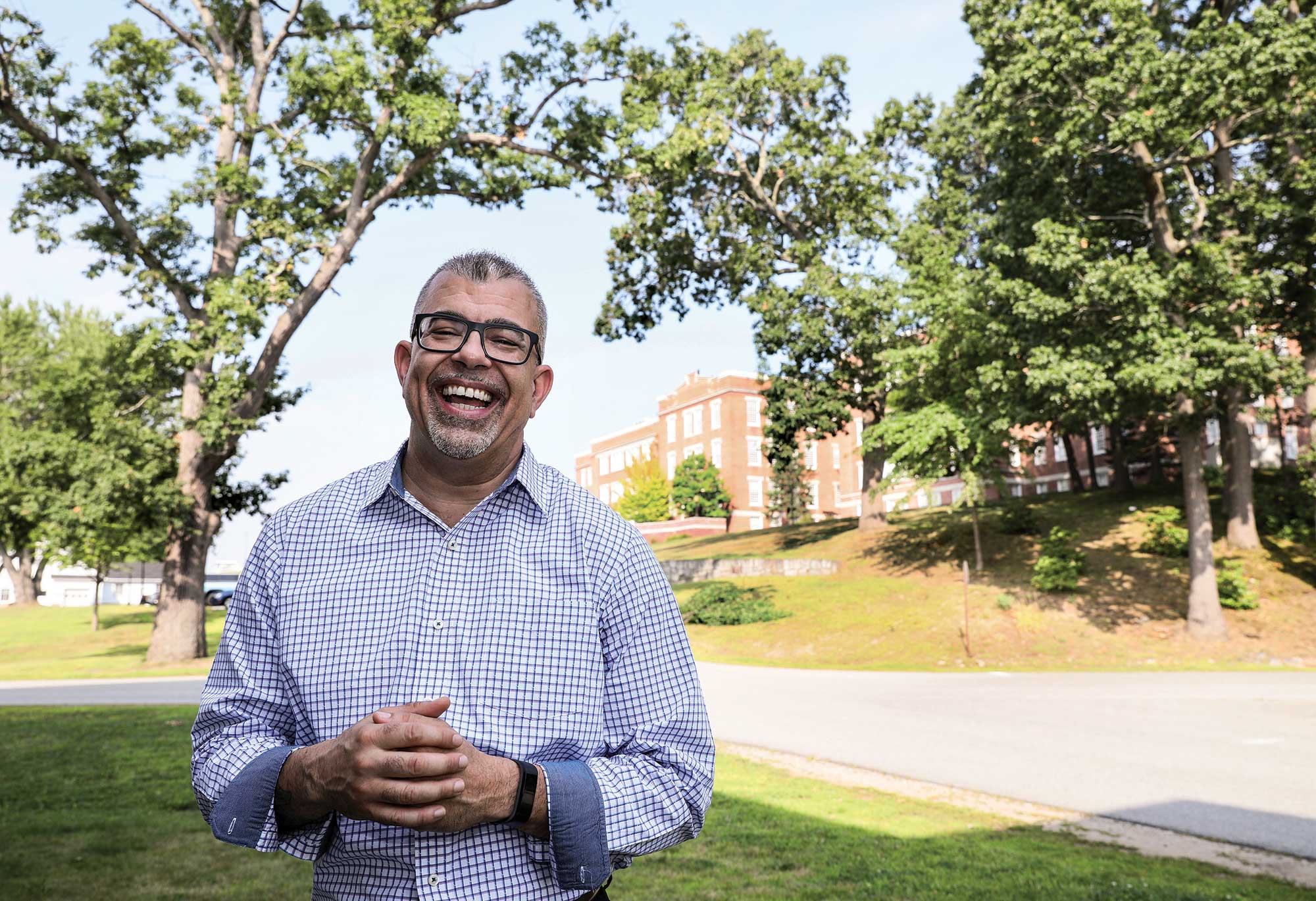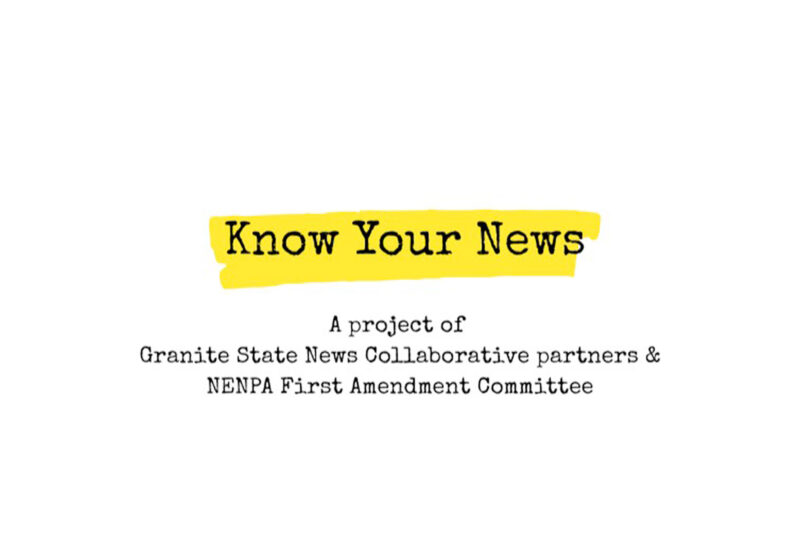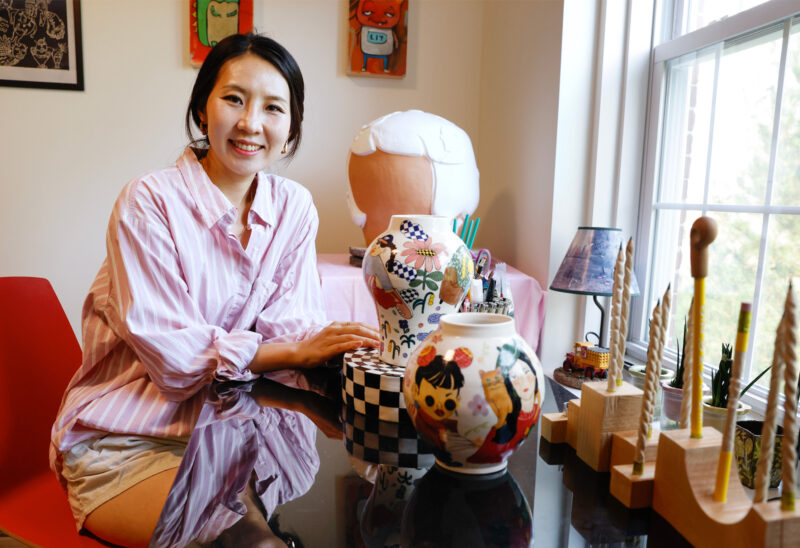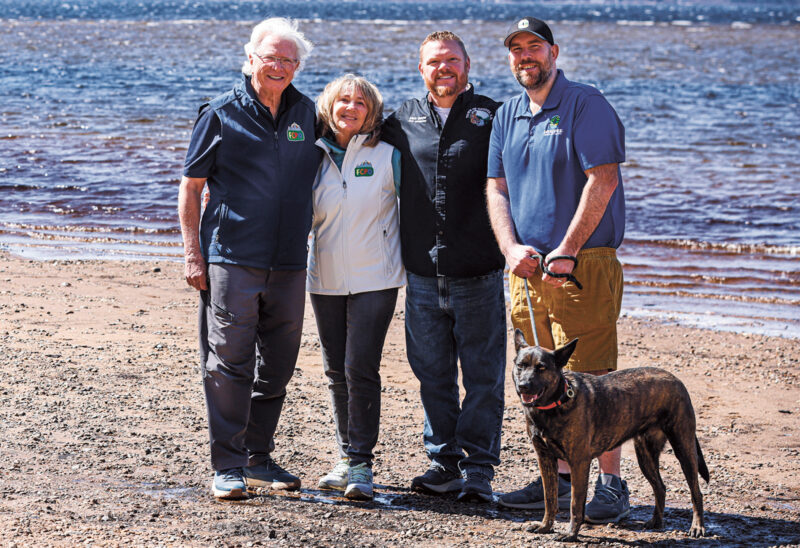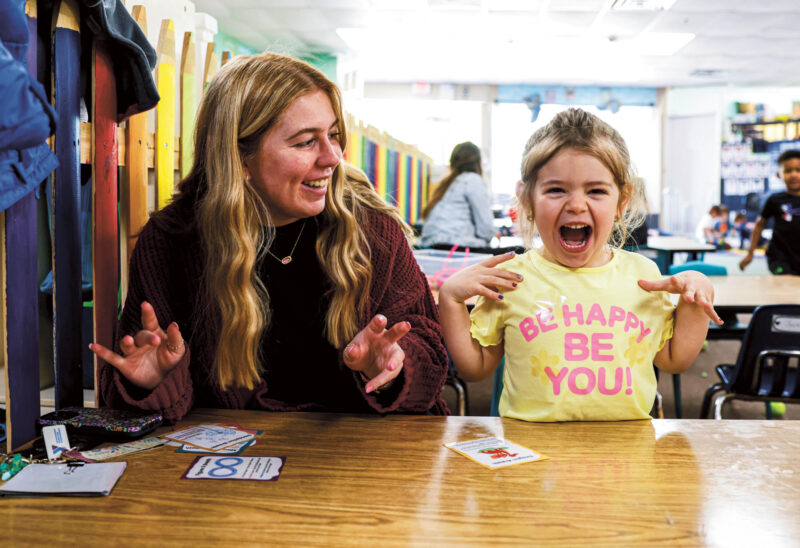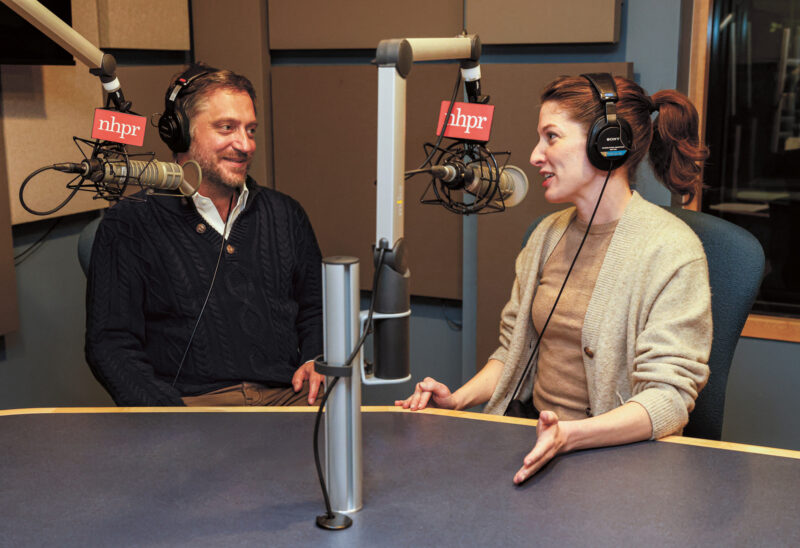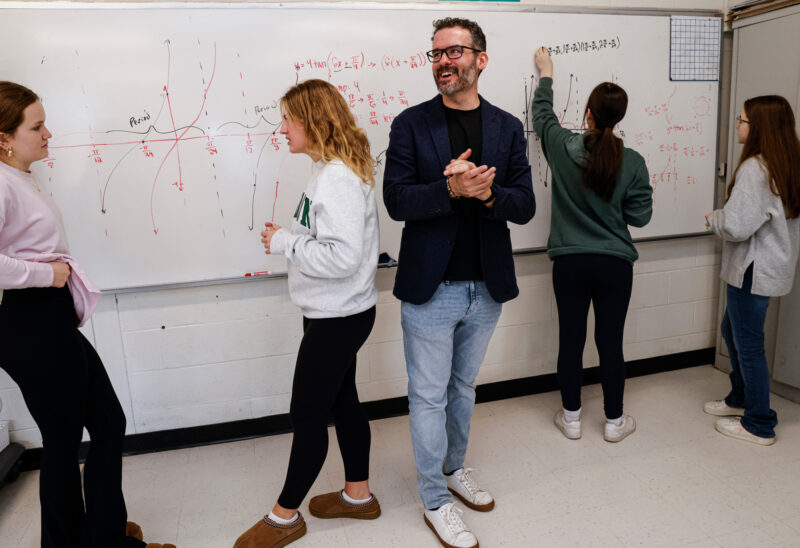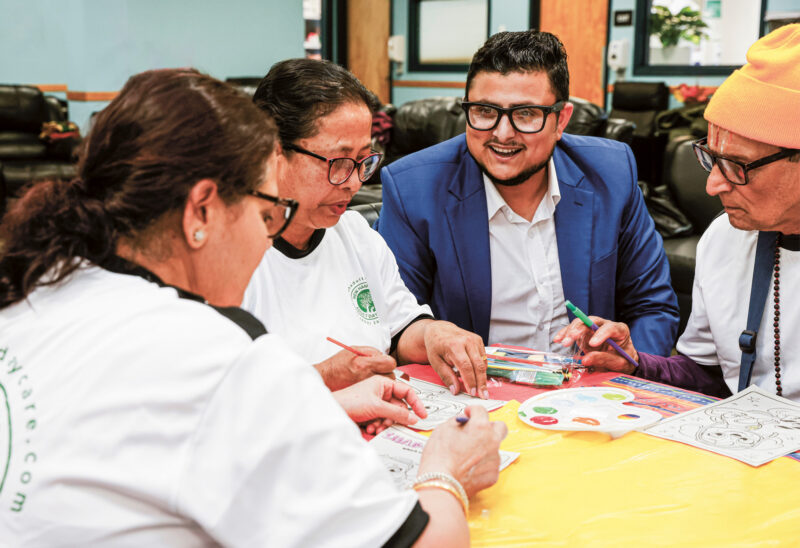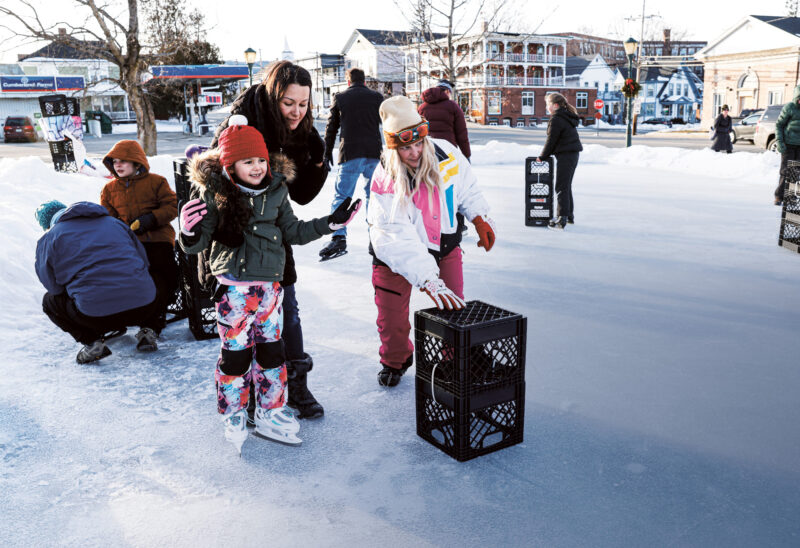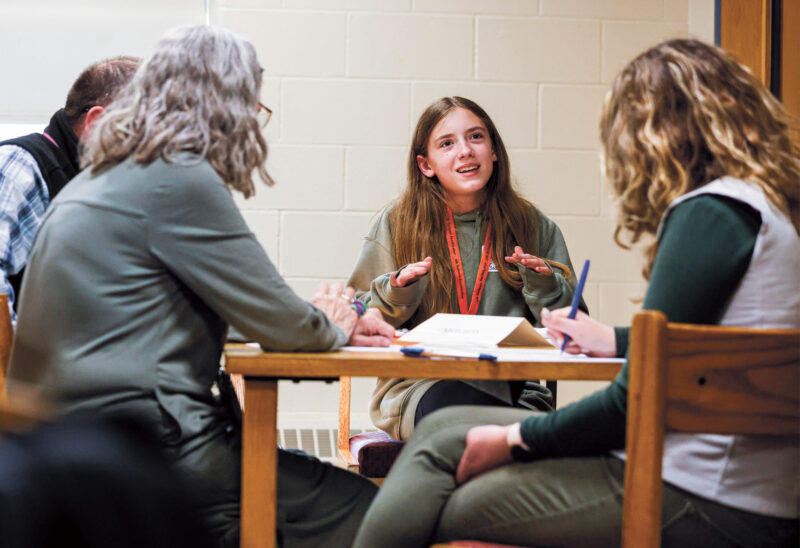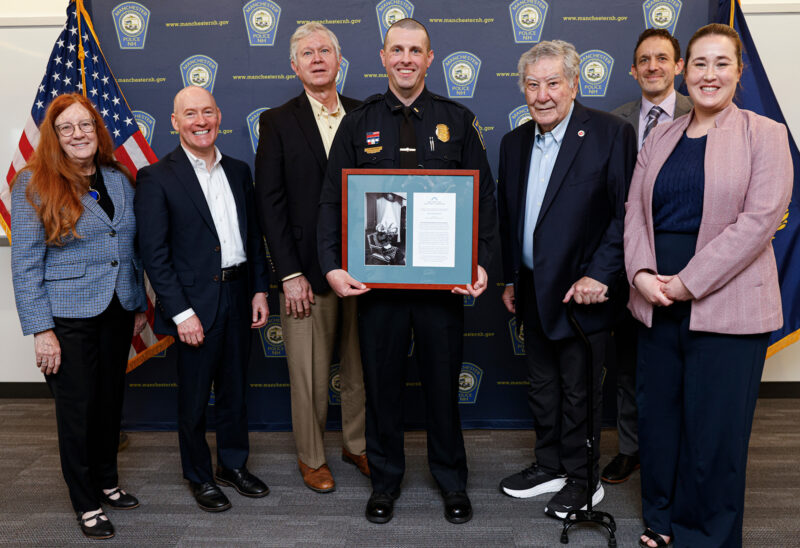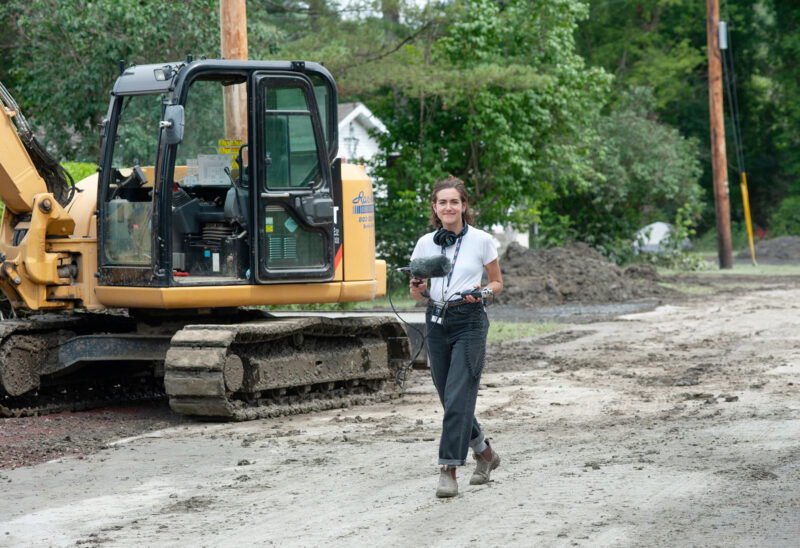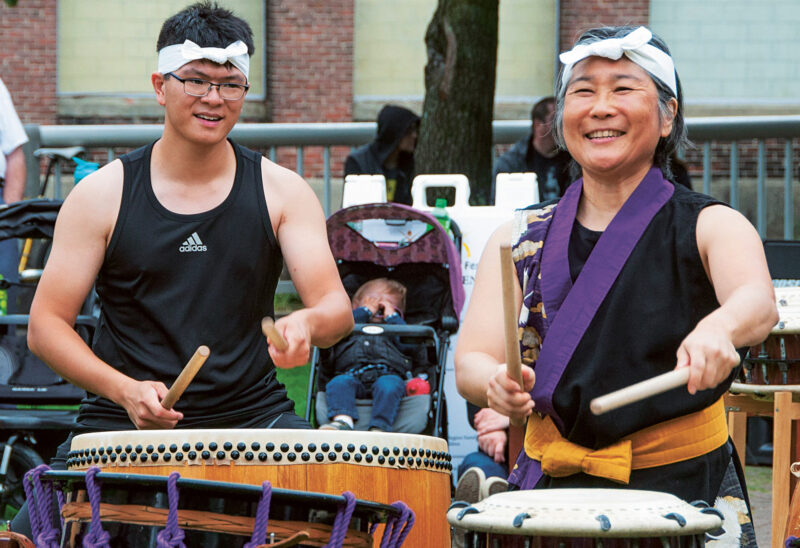Anthony Poore has been executive director of New Hampshire Humanities since 2018. He spoke with the Charitable Foundation’s Lois Shea about the urgency of the humanities in this moment, bringing new voices into the conversations, politically conscious hip-hop — and more.
I saw a definition of the humanities the other day that was “how people process and document the human experience.” What is a good working definition that you like?
That is a wonderful umbrella definition. Former National Endowment for the Humanities chair William ‘Bro’ Adams talked about the humanities in terms of three things: Work readiness — building critical thinking skills and using the lens of history to help inform a future; Participation readiness – encouraging civil conversation and dialogue; And existential readiness: ‘In this big wheel of life, what spoke am I? How do I connect to something larger than myself spiritually, and mentally?’
Why are the humanities urgently important right now?
I can’t think of a time when we have seen civil discourse at a level below where it is now. Can you think of a time in our lifetime when we have seen the vitriol and the hate and the rise of linguistic and ideological tribalism? And the lack of appreciation for the human condition and the quilt that this country is comprised of?
I cannot think of a time when the humanities were needed more than now. To use the lens of history to instruct our future endeavors, to understand the role of religion and linguistics in how we communicate effectively…
One of the things that I love about our shop, one of the things I appreciate so much, is that we create safe places for difficult conversations.
There is no single phrase that better encapsulates who and what we are and why we exist.
And you are working to bring new voices into the conversations.
Yes, for example New Americans who participate in the New Voices program have an opportunity to share their story and broaden people’s understanding so they’re not viewed as takers — they can be viewed as makers and contributors.
When I saw all these women able to give voice to their story both in English and their native language, and to look at the reactions of the majority culture. We have shared experience. And if I can identify one shred of experience we share, they can begin to see me as a human being and as somebody who is equal instead of somebody who is not. And I think the humanities is uniquely positioned to be able to do that.
Last year, we served 174,000 people through our digital humanities work, our physical face-to-face work and our other media. That is over 10 percent of the state’s population. But when we begin to peel that back, you see who’s not there. And what you saw were a lot of people who definitely did not reflect my experience or the experience of some of the newer Americans who are coming into the state (who, frankly, had they not, the state would have suffered a population loss.) My job is to reduce all barriers, to make sure that anybody is welcome to come underneath our tent. No matter who you are, who you love, what your identity is, where you come from, how big your pocketbook is, we don’t care. There’s a seat for you.
With programs like Ideas on Tap and Humanities at Work, you are bringing your programming to where people spend their time.
This is not rocket science — we go to where people like to congregate. We know that local pubs are places to build community, so “Ideas on Tap” goes there.
We launched “Humanities at Work,” because we spend more time, usually, in the workplace than in our home place. And when you think about our business model, our programs were historically delivered either through a library, a historical society or a local community-based program and they were delivered at six or 6:30 in the afternoon. Well, you’re a parent I’m a parent. At six, 6:30, I’m busy feeding my kid, maybe cutting the grass, sweeping up the kitchen floor. Anything and everything but thinking about going to a humanities program. And as a manager of people, I know employees want something beyond just salary and benefits. They want to be connected to something larger than themselves.
And this is where the humanities are part of the solution to recruiting and retaining workers, and alleviating the workforce shortage that the state faces?
I was really impressed with what Stay Work Play did a couple years ago with the study that looked at the interests and needs of millennials in the state. One of the major findings was that millennials are looking for an organization to work for that allows them a certain level of agency and allows them to be part of something larger than themselves. It’s one of the values Humanities at Work can help actualize.
We know that the most efficient and effective employee is that employee who can bring their whole self to the workplace. So we support their bottom line, and overall, New Hampshire’s workforce.
Tell me a story of a moment where you said to yourself: “That is what success looks like for my organization.”
The HR Director of Delta Dental came up to me at an event and said, ‘I’ve got to tell you this story.’ She said ‘not too long ago, we had one of your living history performers come in and do a performance of Ona Judge [a woman who was enslaved by George Washington and escaped to New Hampshire], and I was really impressed and surprised and shocked by the level of impact that it had on my employees. It reverberated for months afterwards.’ Companies are really struggling in the areas of diversity, equity access and inclusion. And I began to think about, ‘can we create a safe place, through performance art, that allows people to surface raw emotion and contextualize that emotion in a way that allows them to process it as a group, that allows them to start this journey together?’ And maybe we can really do something in this space…and that was kind of the genesis of Humanities at Work…
And two days later Amherst Labels called us. We did a program for 55 of their employees — and these are not people who look like your typical humanities person, they look like my stepdad coming off the shop floor. That’s when I knew we were in the right space. These are people who reflect the everyday New Hampshire experience. These are the people we were intended to serve.
The president’s most recent budget proposal called for the closure of the National Endowment for the Humanities, which is where 60 percent of your funding comes from. On some level that must make it harder to do the work.
They did it the year before and will probably do it in the next year’s budget, but you know what? I don’t worry about the things I can’t control. But I will tell you that within the New Hampshire federal delegation, the support of New Hampshire Humanities has never been higher. And we are so grateful. Last year we supported 549 individual programs, 206 in District 1 and remaining in District 2. And all those were free to support the cultural fabric of local communities.
You most recently worked as Director of Regional and Community Outreach at the Federal Reserve Bank of Boston, and before that as an Assistant Dean at Southern NH University. You have degrees in social work and community and economic development and an MBA. How is New Hampshire Humanities the logical next chapter in your story?
This really is the culmination of everything that I have been working on for the past almost-30 years. I literally started working full time and basically haven’t stopped since I was 20.
Even as a kid, I knew I liked people more than I liked things. I also had an interest in wealth, and the economics of the black community where I grew up, and the circulation of wealth within my community. My grandfather was the treasurer of the church, he was a small business owner, he had a couple apartment units, he had a juke joint back in the day. And I had a penchant for numbers.
I grew up within the black community and understood the interrelationship of the black arts movement like the Last Poets and James Baldwin and the importance of Maya Angelou and how art can move people forward…so that was my first dabble in this interrelationship with the humanities, arts and culture. And I always have had an interest in four areas: Arts and culture; higher education; affordable housing, community development, lending and investing; and most recently this area of public health and the interrelationship of the social determinants of health.
I came out here [from Dayton, Ohio] and I put myself through all my schooling in community economic development.
I am the classic proud liberal, I like to hug a tree. But at the same time, I also understand that in order to do God’s work, I’ve got to figure out how to keep the lights on, and if I don’t demonstrate value consistently over time that I can measure and report out, I will not be successful as we continue to compete over a smaller and smaller body of resource and we have to be efficient and effective in its allocation.
You were also a bass player. So is there a house band at New Hampshire Humanities?
No. (Laughs). I grew up around all musicians and we all wanted to be punk rockers…My mother was a short little Irish woman who grew up in the ‘hood and my dad was this black dude, so I also had the benefit of hip-hop culture. So for me it was Public Enemy and Tribe Called Quest all the Native Tongues folks — and they continue to inform my experience to this day.
I struggled as a kid with my identity. I was not black enough for the black kids and not white enough for the white kids. That time Anthrax did their collaboration with Public Enemy called “Bring the Noise” it was like ‘YAAAAH, that’s my life! Cross-cultural politically conscious hip-hop!’ Changed my world.

